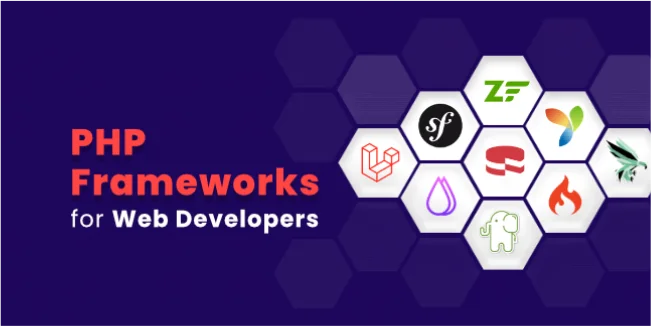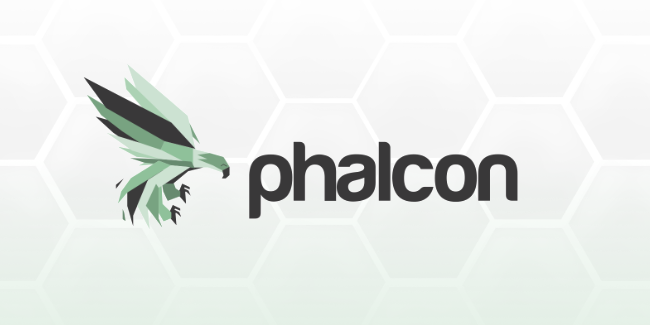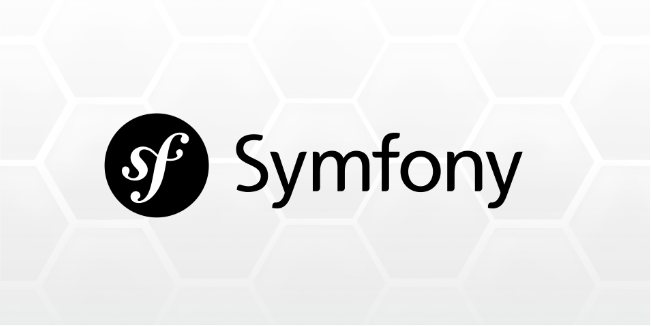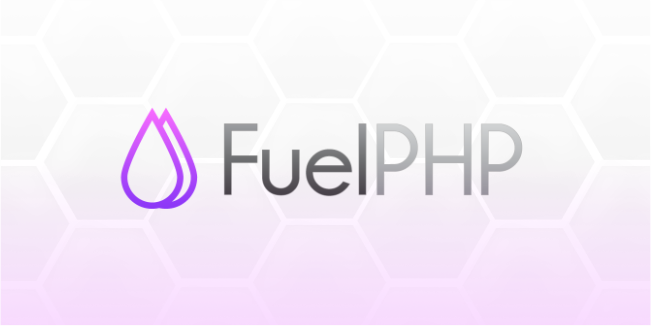Web Development
Technologies
webdevelopment
php
phpframeworks
PHP frameworks for web developers to consider in 2022

PHP is a popular programming language that has been used to build hundreds of thousands of websites. Aside from HTML, CSS, and JavaScript, PHP is one of the names that spring to mind when you think about web development.
According to Statista, PHP was the most popular programming language worldwide in 2021, with a market share of 45.43%. The second was APS.NET, with a 17,46% market share!
Choosing the best PHP framework is essential for web developers or businesses. Luckily, there are hundreds of options available on the market today. To make your task even easier, we've prepared a list of the most popular and influential open-source MVC (Model-View-Controller) frameworks written in PHP. These will be perfect for small websites without complex requirements and more advanced B2B-driven solutions requiring additional features.
Most businesses operate on tight budgets and choose the most cost-effective and efficient PHP framework for their needs. Working with digital software is tough, so you have to rebuild previously built functions and can be freely downloaded in various formats. Is it possible to use digital software as a commercial product? The PHP web development platform gives you the building blocks you need to create a web application without reinventing the wheel. There's some work involved in getting started with PHP.
What is and why use PHP frameworks?
A PHP framework is a software platform that allows you to create PHP web applications. PHP frameworks reduce the amount of original code you must write by giving code libraries for popular actions.
PHP frameworks often use the Model View Controller (MVC) design pattern. This idea separates data manipulation from its presentation. The Model is a component that keeps track of the business rules and application data. It transmits information to the View, which is in charge of the presentation. The User interacts with the View and enters commands via the Controller. The Controller passes these instructions on to the Model, executing them.
In a nutshell, MVC architecture means that the Model is concerned with data, the View is concerned with appearance, and the Controller is responsible for actions. PHP is a server-side programming language used to create dynamic websites and applications. PHP frameworks provide the fundamental structure for web application creation.
Faster Development Process
When using a PHP web development framework, you aren't coding from scratch. The time needed for development is reduced because PHP framework software comes with pre-installed libraries and tools.
It takes less time to write the code
Functions that are built-in to the framework require less original code, as they don't need to be written. PHP development processes are faster and more efficient thanks to the PHP web frameworks and reusable PHP components.
Libraries
Form validation, data sanitation, and CRUD operations are examples of everyday activities developers will have to perform (as shown above). You can instead utilize the framework's built-in functions for these activities rather than having to write your own.
Security
Cross-site scripting, SQL injection prevention, and cross-site request forgery are PHP security issues. Unless you take the appropriate measures to protect your code, your PHP web applications will be susceptible. Using a PHP framework does not eliminate the risk of hacker attacks, but it lowers it significantly. The data sanitization features in excellent frameworks and the above-mentioned common dangers are all protected against.
Better Communication in the team
If there isn't clarity around documentation, design choices, or code standards, projects with many developers can go wrong. A framework provides a framework for your project that everyone understands. Even if another developer isn't familiar with the framework, they should quickly pick up the basics and work together.
Easier to Maintain
PHP Frameworks promote code refactoring and the practice of "Don't Repeat Yourself" (DRY) development. There's no need to worry about maintaining the core framework because the developers have already taken care of it. The resulting leaner codebase requires less upkeep.
What should you look for in a framework?
There are a few things to consider while selecting a PHP framework.
- Size of the community and popularity: Because of their popularity, many frameworks are largely community-driven, so maintaining and developing a framework is a significant advantage.
- The goal of the framework: What is the goal of the framework? If it doesn't match your company's needs and objectives, you should consider whether it's suitable for you.
- Sustainability: Is the framework up to date regularly, and will it be able to support your technological infrastructure both now and in the future?
- Learning curve: It's vital to master the core principles of each PHP framework since they vary from one another. However, because there is no standardization in the industry, it takes time to understand how to utilize it. Having material accessible helps to level the learning curve and shortens the time required to understand the framework.
Popular PHP frameworks
Here are the best PHP frameworks that have already been tested for various commercial requirements.
Laravel
Laravel is a popular PHP framework that was first released in 2011. Why? Because it can securely manage complex web applications at a significantly faster rate than other frameworks. Laravel reduces the development process by minimizing frequent routing, sessions, caching, and authentication.

When it comes to building complicated backend features, such as small or large applications, Laravel is ideal. By providing a prepackaged, all-in-one vagrant box known as Homestead, the installation of Laravel has been made easier.
It's a PHP framework with many features that will assist you in customizing complicated applications: seamless data migration, MVC architecture support, security, routing, view template engine, and authentication.
Laravel is a flexible framework that offers a lot of functionality for a minimal learning curve. It's fast and secure, in line with expectations for a modern web application. Laravel is the way to go if you want to create B2B or enterprise websites that will change alongside evolving web trends.
See our brief guide through Laravel.
Key Features:
- Laravel functionality packages,
- Built-in functions,
- Laravel Homestead environment and a highly active programming community.
Symfony
The Symfony framework was created in 2005. Symfony is a full PHP MVC framework that adheres to all web standards. While it's been around for longer than other frameworks on this list, it's a trustworthy and mature platform.
Symfony is a PHP framework that uses a modular component system to allow maximum flexibility. For your project, you may select from over 50 different PHP components. Instead of depending on the whole library, you may choose which modules to utilize instead if you only need minor assistance.

Symfony is an excellent candidate for large-scale business initiatives. It's simple to set up and use on most platforms.
Is it one of its most important characteristics? It uses readily reusable PHP components. It also has database engine independence, stability, compliance with most web best practices and design patterns, and integration with other vendor libraries.
Symfony may also be used to build large applications like Drupal. Symfony and Laravel have many comparable and distinct characteristics, making it difficult to choose one of these platforms as superior. On the other hand, Symfony is aimed at skilled developers and is more challenging to get started with than Laravel. Symfony also caters to more experienced developers, whereas Laravel is intended for not as technical people. In addition, the Symfony security system might be tough to use. Because it allows developers to accomplish everything, it may be slower than others.
Key Features:
- Individual components settings,
- Built-in debugging,
- Twig template engine,
- Excellent documentation.
CakePHP
CakePHP was founded early on and has continued to develop better functionality and new components since then. The most suitable tool kit for your needs is simple and elegant. CakePHP aids in the creation of attractive, feature-packed websites. CakePHP is a simple framework to learn because of its CRUUD architecture. Readers, updates, and deletes are all created.
CakePHP is a simple, easy-to-install PHP web framework. All you need is a web server and the framework to get started.
For commercial applications, it's an excellent choice since it includes security features such as SQL injection prevention, input validation, CSRF protection, and XSS protection.
A minimalist framework with no bloated parts, a clear separation of concerns, and highly descriptive code is an attractive combination for most developers. Some key features include modern architecture, quick builds, correct class inheritance, validation, and security. CakePHP also offers comprehensive documentation, numerous support channels, and expert assistance through Cake Development Corporation.
Key Features:
- CakePHP's coding conventions,
- A broad set of components,
- Multiple support channels.
FuelPHP
Although FuelPHP is a relative newcomer to the community, it adheres to the same high standards as other frameworks. While PHP frameworks have largely adopted MVC, FuelPHP goes a step farther by fully supporting Hierarchical Model View Controller (HMVC). It allows you to test parts of your website applications more easily while also being as successful.

The idea behind FuelPHP is to help software engineers create complete web solutions in various sizes and intricacies.
FuelPHP is a solid choice for projects with high-security needs because it goes beyond standard safety measures. Because FuelPHP is relatively new, it lacks support and may have a steeper learning curve.
Key Features:
- Full support for HMVC (Hierarchical Model View Controller),
- A unique command-line utility,
- URL routing system and built-in caching system.
Yii
Yii Framework is a PHP-based web application framework suited for contemporary web development. In Chinese, "Yii" means "simple and evolutionary." Yii may be used to create any website application. As a result, the framework may be used in almost every website.
Yii is simple to set up. Its strong security features make it ideal for projects with high-security requirements such as e-commerce, portals, CMSs, forums, and other applications.
It has excellent performance and functionality, and it's extremely flexible. It allows developers to avoid the challenge of repeating SQL statements because they can model database data in terms of objects.
Yii is a popular open-source framework with a core developer team and experts who contribute to its growth. You may post concerns on Yii forums and get assistance from the large community utilizing it.
Yii is quite flexible, and you can make almost every part of the core code your own. However, if this is your first time using it, know that it has a significant learning curve.
Key Features:
- Customizable setup,
- Support to various extensions,
- Built-in security measures.
CodeIgniter
The CodeIgniter framework aids in the rapid creation of web apps because it requires little configuration. CodeIgniter is a simple and easy-to-use PHP framework that is painless to set up, unlike other frameworks. It's excellent for beginners since it has a simple setup procedure and extensive documentation.
The advantages of using this framework include outstanding error handling, an MVC architecture, built-in security tools, and comprehensive documentation. It also creates scalable applications.
CodeIgniter is significantly quicker than other frameworks. Because it also delivers good performance, it's a fantastic choice when you want to create lightweight apps that run on little servers. One exception: CodeIgniter releases are somewhat infrequent; therefore, the framework isn't ideal for an application that needs high-level security protection.
Key Features:
- Lightweight framework,
- Excellent documentation,
- Built-in security features.
Phalcon
Phalcon is a PHP framework written in C and Python and released in 2012. The framework doesn't require expertise with C because it uses PHP classes and namespaces.
Phalcon is a PHP framework that makes it simple to develop highly configurable web apps according to corporate development standards.

The essential features are improved execution speed, asset management, a universal autoloader, and top security and caching. Phalcon optimizes performance due to its efficient memory usage. If you're attempting to create a fast website, consider Phalcon.
On the negative side, Phalcon developers are sluggish to patch bugs, which may not be compatible with today's demands for high levels of security.
Key Features:
- Based on the C programming language,
- Fantastic performance and low resource overhead,
- Possible to add only the needed modules and libraries.
Zend framework / Laminas
The Zend Framework is a well-known PHP framework that has recently started using Laminas. Because Zend is no longer maintained, migrating to Laminas is strongly advised. Zend framework is ideal for huge, enterprise-level projects. It's popular among big IT departments and banks.
The Zend framework includes ample documentation and has a vibrant developer community. MVC components, a simple cloud API, data encryption, and session management are all included. Using a module is an advantage because you can use only the components you want, integrated with external libraries. However, if you're a mobile app developer, prepare for a steep learning curve.
Key Features:
- MVC architecture,
- Integration with external libraries,
- Allows using only the components you need.
Slim framework
Slim is a PHP micro-framework ideal for creating simple web apps instead of other PHP frameworks we've examined so far. Despite its simplicity, it packs some incredible features.
Slim is simple to pick up. RESTful APIs and web services may be built in PHP using Slim. Add-ons include advanced features like URL redirection, session, and cookie encryption, client-side HTTP caching, and more.
Slim is a minimal implementation of the PHP language that provides increased performance while retaining a lot of functionality. Still, it's not the most suitable framework for building a full-fledged web application. Furthermore, with its active maintenance and user-friendly documentation, Slim is very user-friendly.
Key Features:
- Fast and powerful HTTP router,
- Middleware application,
- Client-side HTTP caching.
Conclusion
If you want to cut down on the time it takes to develop PHP web applications, using a framework is a good idea.
When it comes to server-side scripting, PHP is still one of the most popular languages. However, creating a PHP script may take a long time. The benefits of using PHP over other languages, such as C and C++, are manifold. For example, in the world of web programming, PHP frameworks provide a development foundation so that developers may concentrate on the creative aspects of their job rather than repeating tasks or editing code. Choosing the best PHP framework for your project might be difficult, especially given the many well-known and distinct options. You can drop us a line and take a free consultation with our PHP developers.